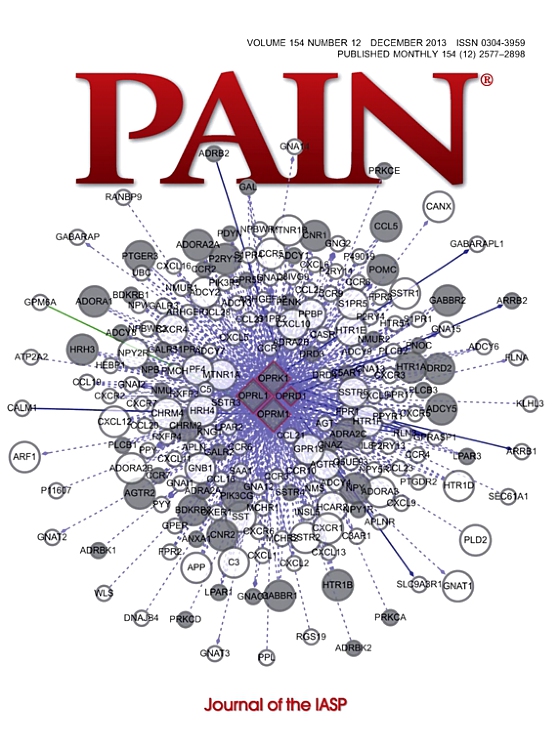慢性广泛性疼痛(包括纤维肌痛)的自我管理干预:系统回顾和定性证据综述。
IF 5.9
1区 医学
Q1 ANESTHESIOLOGY
引用次数: 0
摘要
在慢性广泛性疼痛(CWP)(包括纤维肌痛)的治疗中,支持行为自我管理越来越重要。了解人们对这些干预措施的体验可以阐明导致或阻碍其预期效果的过程和机制。我们对探讨慢性广泛性疼痛(包括纤维肌痛)患者自我管理干预经验的定性研究进行了系统回顾和专题综合。我们检索了 MEDLINE、Embase、PsycINFO、CINAHL 和 Web of Science。如果主要定性或混合方法研究探讨了人们对其 CWP(包括纤维肌痛)的自我管理干预经验,则将其纳入研究范围。由两名审稿人进行筛选、数据提取和批判性评估。数据分析通过专题综合法进行。共纳入 23 项研究,其中大部分被评为高质量或中等质量。我们制定了 4 个分析主题:干预的多方面体验、群体凝聚力的潜在转变体验、新的前景以及失去支持后的努力改变。总的来说,个性化被认为是有益的,人们经历了一系列情感体验。这些体验似乎支持了积极的行为和认知变化。对大多数人来说,小组活动促进了接纳和支持,培养了新的视角,改善了自我管理,但也有一些人认为小组活动具有挑战性。由于干预后缺乏持续的支持,在应用行为策略方面遇到了挑战,一些人在没有团体社会支持的情况下陷入困境。对慢性病患者进行自我管理干预的经历反映了一个复杂的、多方面的过程。尽管许多人报告了积极的经验,但解决体育活动的整合、小组动力和干预后支持等问题,可能会提高对更多人的有效性。本文章由计算机程序翻译,如有差异,请以英文原文为准。
Self-management interventions for chronic widespread pain including fibromyalgia: a systematic review and qualitative evidence synthesis.
Supporting behavioural self-management is increasingly important in the care for chronic widespread pain (CWP), including fibromyalgia. Understanding peoples' experiences of these interventions may elucidate processes and mechanisms that lead to or hinder their intended impact. We conducted a systematic review and thematic synthesis of qualitative studies exploring peoples' experiences of self-management interventions for CWP, including fibromyalgia. MEDLINE, Embase, PsycINFO, CINAHL, and Web of Science were searched. Primary qualitative or mixed-methods studies were included if they explored people's self-management intervention experiences for their CWP, including fibromyalgia. Screening, data extraction, and critical appraisal were conducted by 2 reviewers. Data analysis was conducted through thematic synthesis. Twenty-three studies were included, mostly were rated as high or moderate quality. We developed 4 analytic themes: A multifaceted experience of the intervention, potential for transformative experience of group cohesion, a new outlook, and striving for change after the loss of support. Broadly, personalisation was perceived as beneficial and people experienced a range of emotional experiences. These appeared to support positive behavioural and cognitive changes. For most, group activities promoted acceptance and support, fostering new perspectives and improved self-management, although some found aspects of group contexts challenging. Lack of on-going support after interventions led to challenges in applying behavioural strategies, and some struggled without social support from the group. The experiences of self-management interventions for CWP reflect a complex, multifaceted process. Although many reported positive experiences, addressing issues with integration of physical activity, group dynamics and postintervention support may improve effectiveness for a broader range of people.
求助全文
通过发布文献求助,成功后即可免费获取论文全文。
去求助
来源期刊

PAIN®
医学-临床神经学
CiteScore
12.50
自引率
8.10%
发文量
242
审稿时长
9 months
期刊介绍:
PAIN® is the official publication of the International Association for the Study of Pain and publishes original research on the nature,mechanisms and treatment of pain.PAIN® provides a forum for the dissemination of research in the basic and clinical sciences of multidisciplinary interest.
 求助内容:
求助内容: 应助结果提醒方式:
应助结果提醒方式:


